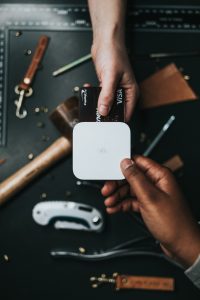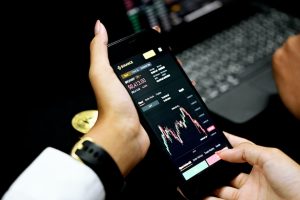Forex, also known as foreign exchange, is the largest financial market in the world, with a daily turnover of over $5 trillion. It involves the buying and selling of currencies from around the world. To participate in the forex market, traders need to use a forex broker.
A forex broker is a financial intermediary that enables traders to access the forex market. In essence, a forex broker acts as an intermediary between the trader and the market. The broker provides the trader with a trading platform, access to the market, and other services. Forex brokers can be individuals, companies, or institutions that offer trading services to clients.
Forex brokers make their money by charging fees or commissions on the trades that they facilitate. This fee is usually a small percentage of the trade value and is known as the spread. The spread is the difference between the buy and sell prices of a currency pair, and it represents the broker’s profit.
Forex brokers can be categorized into two main types: dealing desk brokers and non-dealing desk brokers.
Dealing desk brokers are also known as market makers. They make their own market by setting the bid and ask prices for currency pairs. This means that they act as the counterparty to the trader’s trades. Dealing desk brokers can offer fixed spreads, which means that traders know the exact cost of a trade before entering it. However, dealing desk brokers can have conflicts of interest, as they may manipulate prices to their advantage.
Non-dealing desk brokers, on the other hand, do not make their own market. Instead, they provide access to the interbank market, where banks and other financial institutions trade currencies. Non-dealing desk brokers can offer variable spreads, which means that the cost of a trade can fluctuate depending on market conditions. Non-dealing desk brokers are generally considered to be more transparent and trustworthy than dealing desk brokers.
Forex brokers offer a range of trading platforms, including desktop, web-based, and mobile platforms. The most popular trading platform is MetaTrader 4 (MT4), which is offered by most forex brokers. MT4 is a user-friendly platform that offers advanced charting and analysis tools, as well as the ability to automate trades using expert advisors (EAs).
Forex brokers also offer a range of trading instruments, including currency pairs, commodities, and indices. Some forex brokers also offer access to other financial markets, such as stocks and futures.
When choosing a forex broker, traders should consider a range of factors, including the broker’s reputation, regulation, trading conditions, and customer support. It is important to choose a broker that is regulated by a reputable financial authority, such as the Financial Conduct Authority (FCA) in the UK or the Securities and Exchange Commission (SEC) in the US. Regulated brokers are required to adhere to strict rules and regulations, which helps to protect traders’ funds and ensure fair trading conditions.
In conclusion, a forex broker is a financial intermediary that enables traders to access the forex market. Forex brokers offer a range of trading platforms, instruments, and services, and make their money by charging fees or commissions on trades. When choosing a forex broker, traders should consider a range of factors, including regulation, reputation, and trading conditions.





